NATIONAL INFO - The BTN Jakarta International Marathon 2025 marks a major step forward for Jakarta—not just a running competition, but a journey toward becoming a global city and a world-class marathon venue.
The year 2025 will be an important milestone for Jakarta, which is currently celebrating its 498th anniversary and preparing to welcome its 500th anniversary in 2027. More than just a ceremonial celebration, this year's anniversary serves as a reminder of the city's long history and a call to shape the future with a clear vision. The Jakarta Provincial Government has established the overarching theme “Jakarta: A Global and Cultural City” as the strategic foundation for positioning Jakarta among the top 20 global cities by 2045. Within this framework, various transformational initiatives have been launched—from the revitalization of Blok M into the Hub M Bloc Jakarta, the development of a smart city, to international events such as the BTN Jakarta International Marathon 2025.
The BTN Jakarta International Marathon 2025 is not merely an annual sporting event, but a profound reflection on the new direction Jakarta is taking toward becoming an inclusive, humane, and sustainable global city. Amid the complex challenges of urban life—from traffic congestion, unequal access, to social isolation—the BTN Jakarta International Marathon 2025 stands as a symbol of hope and a collaborative space enabling all segments of society to participate in shaping the city’s future.
However, on the road to this historic milestone, the city faces various challenges: from air pollution to population pressure; from spatial inequality to the challenge of preserving local cultural identity. Amidst all this, the BTN Jakarta International Marathon 2025 is not merely an athletic event but a symbol of transformation—about urban space, the right to the city, and the opportunity to make Jakarta more humane, competitive, and rooted.
It is a reflection of the spirit of a city that wants to run alongside its citizens—not only moving forward physically, but also in terms of the values and substance of a more just and collective city life.
Marathons have evolved into a social expression of urban dynamics. They are not just for elite athletes or active lifestyle enthusiasts, but for all city residents. When Jakarta's main streets are opened to tens of thousands of runners from diverse backgrounds, what is seen is not merely a line of bodies running, but a collective event: about a city opening itself up to togetherness, diversity, and the involvement of all. It is not an exaggeration to say that the marathon has become a metaphor for the ideal urban space—open, participatory, and equitable.
The BTN Jakarta International Marathon 2025 is not only a stage for competition, but also a stage for urban inclusion and solidarity. The marathon transforms into a temporary public space, where residents from various socioeconomic backgrounds unite in the same rhythm. This phenomenon reflects a shift in values within urban life, where the ideal city is not one that prioritizes productivity and efficiency alone, but rather one that provides moments of respite and affirmation for all its inhabitants.
Global City Image
The government's ambition to make Jakarta a global city by 2045 is a strategic vision worth fighting for. However, global city status cannot be achieved solely through grandiose infrastructure, advanced connectivity, or digitalization. A global city is one that is inclusive, vibrant, and socially and culturally contextual.
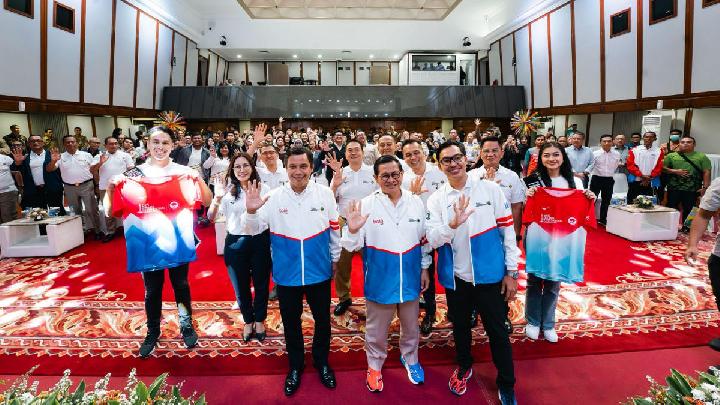 President Director of BTN, Nixon LP Napitupulu (left), and Governor of Jakarta, Pramono Anung (center), pose for a photo with participants during the launch of the BTN Jakarta International Marathon 2025 in Jakarta, Thursday, June 26, 2025. Doc. BTN
President Director of BTN, Nixon LP Napitupulu (left), and Governor of Jakarta, Pramono Anung (center), pose for a photo with participants during the launch of the BTN Jakarta International Marathon 2025 in Jakarta, Thursday, June 26, 2025. Doc. BTN
This means that cities must be able to connect internationally without abandoning their local roots. Cities that can attract global investment and talent, while protecting vulnerable communities. It is this combination of physical progress and social sensitivity that needs to be prioritized. The BTN Jakarta International Marathon 2025 is the ideal moment to showcase Jakarta's potential as a host city for international events that remain inclusive and down-to-earth.
Marathons can be a medium for city diplomacy—conveying the narrative of Jakarta as an active, open, and creative city. With routes that pass through historical sites and iconic public spaces, as well as the involvement of local culture, Jakarta conveys an important message: modernity and locality can go hand in hand.
The global city index now assesses not only economic growth, but also openness, quality of life, innovation, and culture. In this context, marathons have become a concrete symbol of these values. Jakarta not only wants to grow physically, but also to foster a spirit of collaboration, sustainability, and balance between progress and humanity.
Marathons are no longer just a sport, but a strategic tool for building a city's global image. Major cities such as London, Tokyo, and Berlin have proven this—marathons have become a stage for projecting the efficiency, openness, and competitiveness of their cities. The BTN Jakarta International Marathon 2025 has the opportunity to play the same role for Jakarta.
As thousands of runners traversed the Sudirman–Thamrin route, Jakarta presented itself as an open and welcoming city. This event served as a platform for cultural diplomacy, demonstrating Jakarta's readiness to join a network of global cities that prioritize health, diversity, and collaboration.
More than that, the marathon creates a space for cross-class and cross-border encounters—connecting the center and the periphery, local and international residents, the general public and public leaders. The marathon reinforces Jakarta's image as a welcoming and unifying metropolis.
The BTN Jakarta International Marathon 2025 will also serve as a barometer of the city's readiness in terms of logistics management, security, and public services—key indicators in global city governance. The success of this marathon will send a strong signal to the global community that Jakarta is ready to host various international events, not only in sports, but also in conferences and other global forums.
New Economic Growth
The BTN Jakarta International Marathon 2025 is a strategic legacy of the synergy between the public sector and the national financial sector. Rarely is there a public program in Jakarta that combines the values of sportsmanship, diversity, citizen participation, and city diplomacy strategy as strongly as this one. From concept to execution, this marathon has become more than just an annual event—it is a long-term platform that conveys the message that Jakarta is a city ready to run alongside the world.
The legacy of the BTN Jakarta International Marathon 2025 is not only reflected in the thousands of runners who participate or the economic turnover generated, but also in the changes in how the city interacts with its citizens, opening up more public spaces, and shaping a culture of participation. Micro, small, and medium enterprises (MSMEs), creative communities, people with disabilities, and local communities are all given a place within the framework of this event.
Marathons have also driven a new economy, from increased demand for accommodation and transportation, the revival of MSMEs and local vendors, the growth of the creative economy, to the development of digital services and healthy lifestyles. It creates an inclusive economic circuit, opens up job opportunities, and stimulates local consumption.
By making the BTN Jakarta International Marathon 2025 a consistent annual strategy, Jakarta can develop a sports tourism ecosystem that is closely connected to local culture and the digital economy—an inclusive, sustainable, and adaptive urban economic structure.
Strategic Pathway to World Marathon Majors
The BTN Jakarta International Marathon (Jakarta International Marathon) 2025 not only marks Jakarta's maturity as a city with a growing collective spirit, but also opens up strategic opportunities to position Jakarta among global cities through sports diplomacy. More than just an annual event, the Jakarta International Marathon has become a symbol of the transformation of a healthy, open, and inclusive urban space—a crucial stepping stone toward elite status: joining the World Marathon Majors (WMM).
To date, WMM consists of only six cities: Boston, London, Berlin, Chicago, New York, and Tokyo. Each city on this list not only hosts a prestigious marathon, but also promotes its image through world-class event management, the presence of international elite runners, and significant social and economic impact.
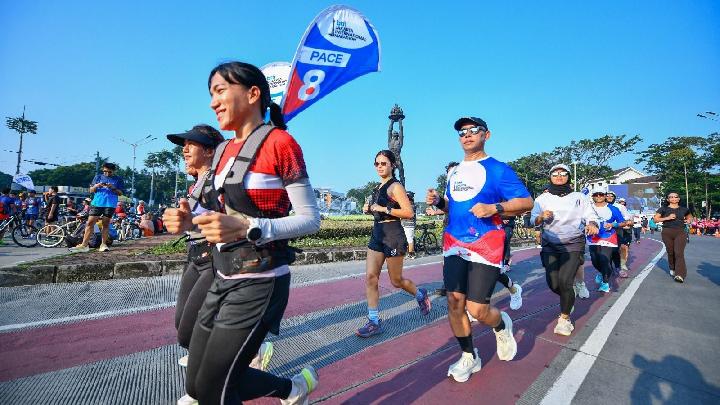 Participants begin the long run session at the Monas area during the launch of the BTN Jakarta International Marathon 2025 in Jakarta, Thursday, June 26, 2025. Doc. BTN
Participants begin the long run session at the Monas area during the launch of the BTN Jakarta International Marathon 2025 in Jakarta, Thursday, June 26, 2025. Doc. BTN
Quantitatively, the BTN Jakarta International Marathon 2025 is not yet on par with the WMM. The number of participants in the BTN Jakarta International Marathon 2025 is targeted at 30,000 runners—compare this to London or Berlin, which have already surpassed 50,000 runners from over 140 countries. The global representation of participants in the Jakarta International Marathon in 2024 only covers 32 countries, and the target of 50 countries by 2025 still leaves a significant gap from the WMM standard. Additionally, the presence of elite runners with times under 2:10 (men) and 2:30 (women)—a key benchmark in athletics—has not been consistently achieved in Jakarta.
In terms of international labels, the BTN Jakarta International Marathon 2025 is still in the process of obtaining the World Athletics Platinum Label, an important prerequisite before applying to become a WMM candidate. Logistics infrastructure, global sponsor support, and international media exposure also need to be significantly strengthened so that Jakarta can compete on equal terms with other cities that are already well established.
Nevertheless, the foundation for moving in that direction has already begun to be built in earnest. The BTN Jakarta International Marathon 2025 is not merely about pursuing the number of participants or race times. It embodies values that are increasingly gaining global attention: sustainability, inclusivity, and collaboration. Through the implementation of Environmental, Social, and Governance (ESG) principles and the 4S approach (Sterile, Secure, Safe, Smooth), the Jakarta International Marathon has demonstrated professionalism in its organization, as well as a commitment to social and environmental aspects.
Support from Bank BTN as the main sponsor provides a strong foundation for the continuity of this program. Moreover, BTN's approach, which not only provides funding but also helps develop a long-term vision—integrating the marathon with the city's diplomatic strategy, MSME activation, and the involvement of the disabled and cultural communities—makes the Jakarta International Marathon more than just a sporting event, but rather an instrument for the city to articulate its identity on the global stage.
Jakarta has also begun to develop a marathon narrative as part of impactful sports tourism. Strategic routes that pass through iconic areas of Jakarta, the involvement of the creative sector, and accompanying cultural festivals strengthen the city's appeal. In fact, the BTN Jakarta International Marathon has gradually built brand equity that can be further capitalized on globally.
To truly enter the WMM radar, Jakarta needs to develop a concrete strategic roadmap:
1. Raise technical quality to Platinum level from World Athletics in 2025–2026 by meeting all route measurement standards, electronic timing systems, and the presence of world-class elite runners.
2. Establishing international partnerships with regional athletics federations, global running communities, and event organizers to expand networks and increase the involvement of foreign runners.
3. Promoting elite performance by attracting runners from the top 20 in the world through a competitive invitation and prize system.
4. Investing in international media and digital streaming to ensure the BTN Jakarta International Marathon 2025 reaches millions of global viewers like other WMM events.
5. Positioning the BTN Jakarta International Marathon 2025 as a multi-dimensional event that unites sports, culture, creative economy, and healthy lifestyle education—to create a unique experience that is not only competitive but also meaningful.
If managed sustainably, the BTN Jakarta International Marathon can register itself as a candidate race for WMM in at least the next 3–5 years. The successful staging of two to three consecutive editions with the highest standards will strengthen Jakarta's position in the eyes of Abbott WMM as a city with credible readiness.
The BTN Jakarta International Marathon 2025 is not just a race. It is a new manifestation of a city that wants to greet the world not with mere slogans, but with concrete actions. A city that does not just build infrastructure, but also narratives. A city that unites the elite and the grassroots, the center and the periphery, professional athletes and ordinary citizens—on the same track.
In an increasingly interconnected world, marathons are a powerful form of soft power. The BTN Jakarta International Marathon 2025 has the potential to become one of the most influential marathons in Southeast Asia, and even the world, if it continues to prioritize professionalism, cross-sector collaboration, and the courage to dream big.
Now, the starting line has been opened. What is needed is not only stamina to run, but also a consistent direction, measured steps, and determination to reach the finish line: Jakarta as the host of the 7th World Marathon Majors in the world.
In pursuing World Marathon Majors standards, it is not only technical and logistical aspects that are in the spotlight. One invisible but crucial indicator is the level of community support and involvement in the event. The BTN Jakarta International Marathon 2025 cannot grow into a world-class event solely through management and sponsorship; it must belong to the community.
One of the main strengths of the London, Berlin, or New York Marathons lies in the collective culture of these cities, which have made marathons part of their urban identity. The public welcomes marathons not as an annual traffic disruption, but as a celebration of the city, a moment when everyone—runners and spectators alike—has a role and meaning.
The enthusiasm of the people of Jakarta for the BTN Jakarta International Marathon 2025 has grown significantly in the last two years. In 2024, tickets sold out within days. The involvement of the running community, artists, young volunteers, local SMEs, and people with disabilities demonstrates that this event is beginning to be celebrated as a city-wide moment. However, the challenge now is to transform this fleeting enthusiasm into sustainable social participation.
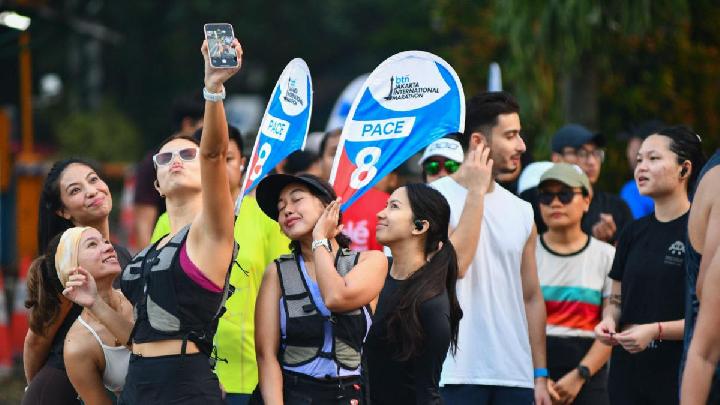 Several participants take photos before starting the long run session at the launch of the BTN Jakarta International Marathon 2025 in the Monas area, Jakarta, Thursday, June 26, 2025. Doc. BTN
Several participants take photos before starting the long run session at the launch of the BTN Jakarta International Marathon 2025 in the Monas area, Jakarta, Thursday, June 26, 2025. Doc. BTN
In this way, the BTN Jakarta International Marathon will strengthen the emotional ownership of the people of Jakarta towards this event—something that is an unmatched element in every WMM. It should be noted that in many WMM host cities, 40–60% of residents watch live on the sidelines or participate as volunteers—a figure that proves that the social impact is stronger than just economic figures.
The marathon in Jakarta must not fall into the trap of exclusivity. If the BTN Jakarta International Marathon 2025 is only synonymous with fast running, upper-middle-class lifestyles, or professional runners, then it will fail to build a strong social network. It is therefore essential to maintain diversity among participants and ensure fair access—from people with disabilities, suburban residents, local cultural communities, to schools.
BTN and the Jakarta Provincial Government need to view public participation not as an afterthought, but as a strategic foundation. Here, the marathon is no longer just an event, but a tangible practice of democratizing urban space—a space where all residents, without exception, have a place and a role. The BTN Jakarta International Marathon 2025 has the potential to be more than just an annual sports event. It can become a city festival, a space for social diplomacy, and a tool for global image transformation. However, all of this will only be realized if Jakarta residents see themselves as part of this larger narrative.
The World Marathon Majors is not just about speed or the number of participants. It is about how a city unites the spirit and its residents on a single track. If the people of Jakarta participate in maintaining, celebrating, and feeling a sense of ownership of this event, then Jakarta has already taken the most important step toward becoming a World Marathon Major—running together with all its residents, leaving no one behind.
(***)





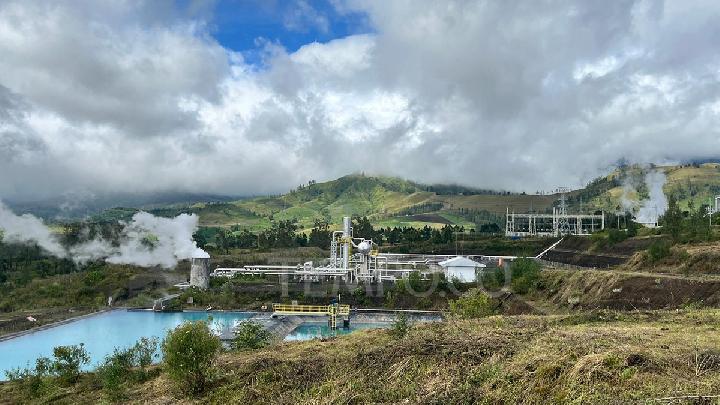




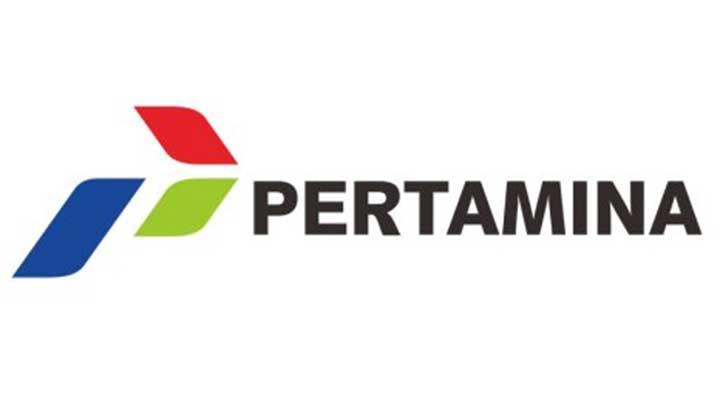




















:strip_icc():format(jpeg)/kly-media-production/medias/4779768/original/056174500_1711004488-hands-holding-knife-fork-alarm-clock-plate-blue-background.jpg)
:strip_icc():format(jpeg)/kly-media-production/medias/3508689/original/070798000_1626139545-20210713-Elon-Musk-SolarCity-5.jpg)
:strip_icc():format(jpeg)/kly-media-production/medias/4769102/original/014075000_1710171937-20240311-Taraweh_Pertama_di_Istiqlal-ANG_1.jpg)
:strip_icc():format(jpeg)/kly-media-production/medias/4878826/original/064720000_1719661833-WhatsApp_Image_2024-06-28_at_23.09.07.jpeg)
:strip_icc():format(jpeg)/kly-media-production/medias/771429/original/006248600_1416892825-m2.jpg)
:strip_icc():format(jpeg)/kly-media-production/medias/4787912/original/016408900_1711630423-20240328-Penukaran_Uang-AFP_6.jpg)
:strip_icc():format(jpeg)/kly-media-production/medias/4669396/original/057272700_1701340063-male-traveler-montenegro-outdoors.jpg)
:strip_icc():format(jpeg)/kly-media-production/medias/1637589/original/042512800_1498996834-20170702-Senja-FF2.jpg)
:strip_icc():format(jpeg)/kly-media-production/medias/3055316/original/077027300_1582165451-BN-bsb-jame-asr-hassanil-m-2.jpg)
:strip_icc():format(jpeg)/kly-media-production/medias/4683631/original/073976400_1702380433-ilustrasi_melihat_nabi_dalam_mimpi.jpg)
:strip_icc():format(jpeg)/kly-media-production/medias/3022229/original/080968000_1579064783-HL.jpg)

:strip_icc():format(jpeg)/kly-media-production/medias/5150517/original/099207500_1741076535-20250304-Banjir_Bekasi-AFP_3.jpg)
:strip_icc():format(jpeg)/kly-media-production/medias/2393719/original/067759100_1540615529-pokemon-go01.jpg)

:strip_icc():format(jpeg)/kly-media-production/medias/1270659/original/036016300_1466509174-Banner.jpg)
:strip_icc():format(jpeg)/kly-media-production/medias/5114856/original/088700500_1738248362-Screenshot_2025-01-30_21.39.48.jpg)
:strip_icc():format(jpeg)/kly-media-production/medias/3430346/original/057356100_1618535827-coffee-cup-with-different-dried-fruits-nuts.jpg)
:strip_icc():format(jpeg)/kly-media-production/medias/5147273/original/095534700_1740968364-cek_fakta_petugas_haji.jpg)
:strip_icc():format(jpeg):watermark(kly-media-production/assets/images/watermarks/liputan6/watermark-color-landscape-new.png,1100,20,0)/kly-media-production/medias/4843119/original/038879500_1716728099-20240526185221_2R8A5728.JPG)